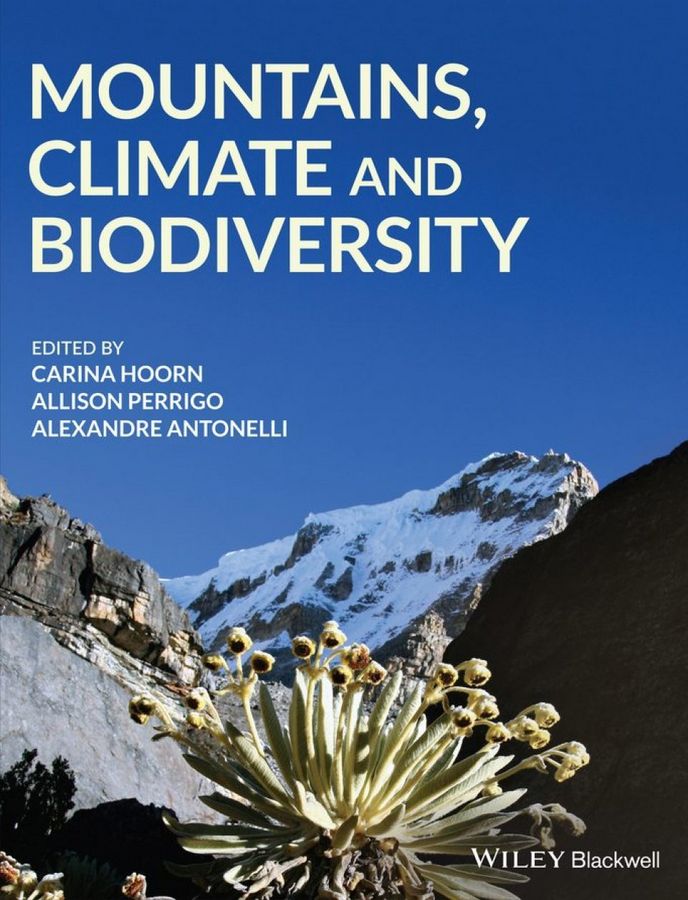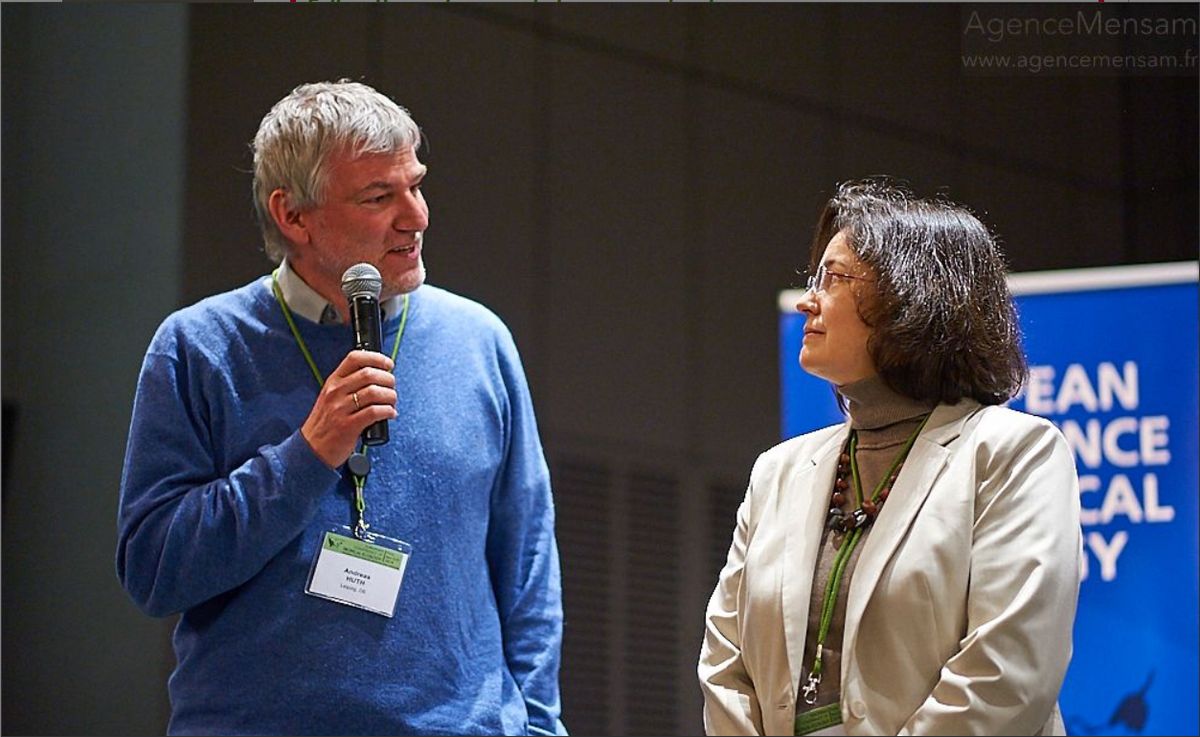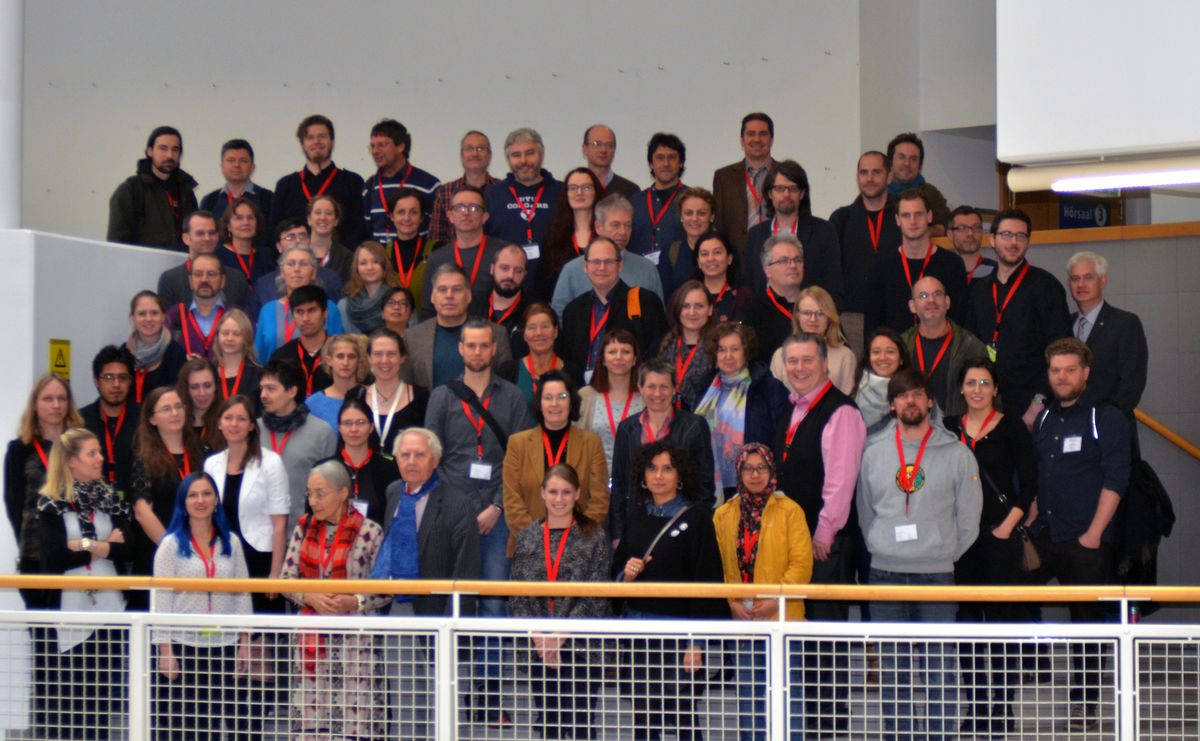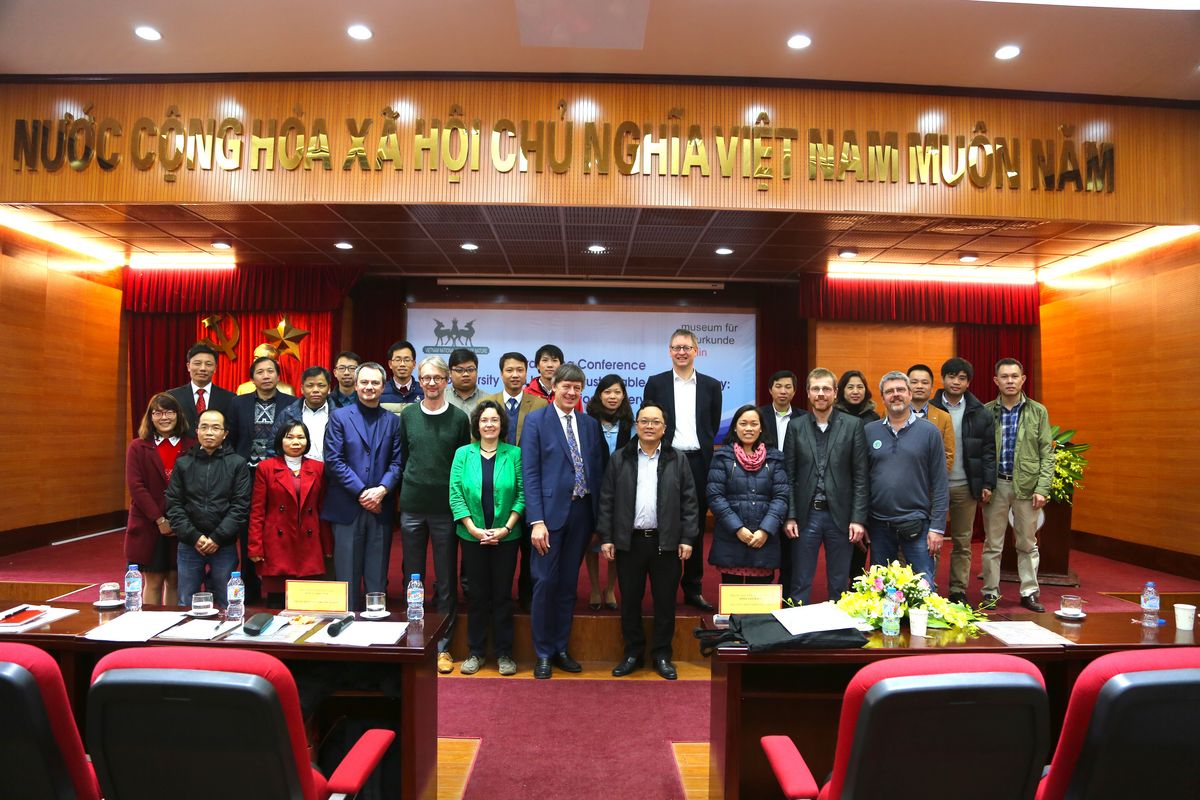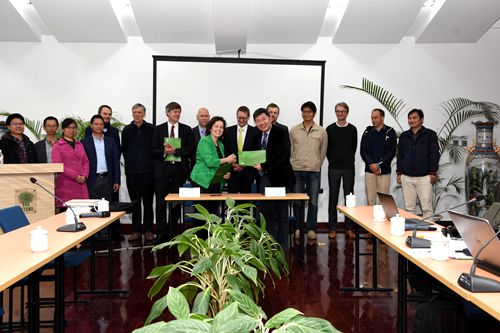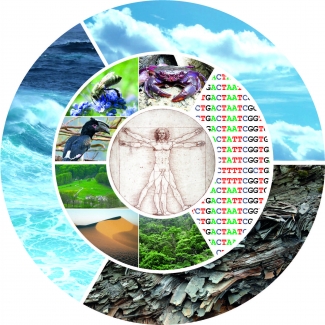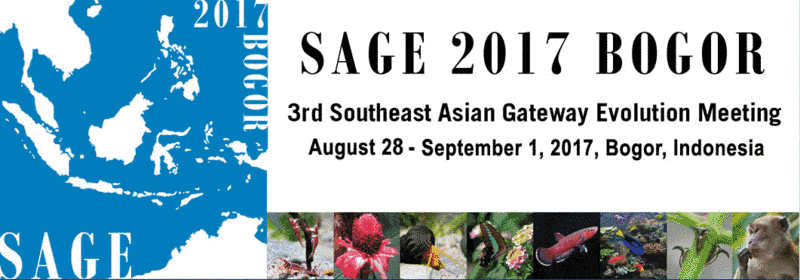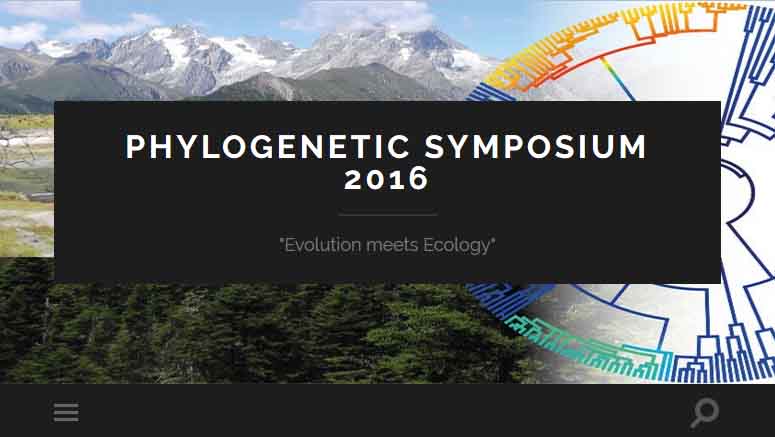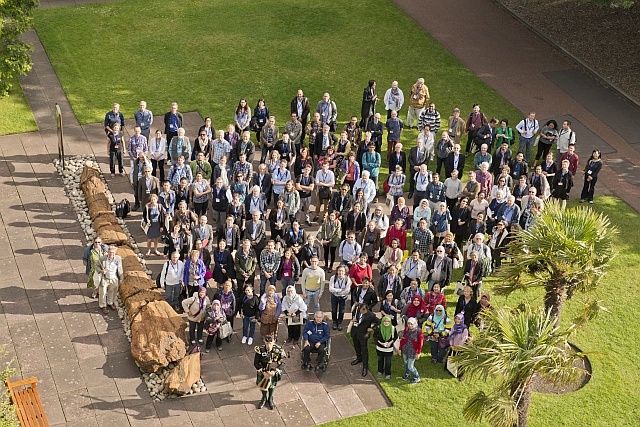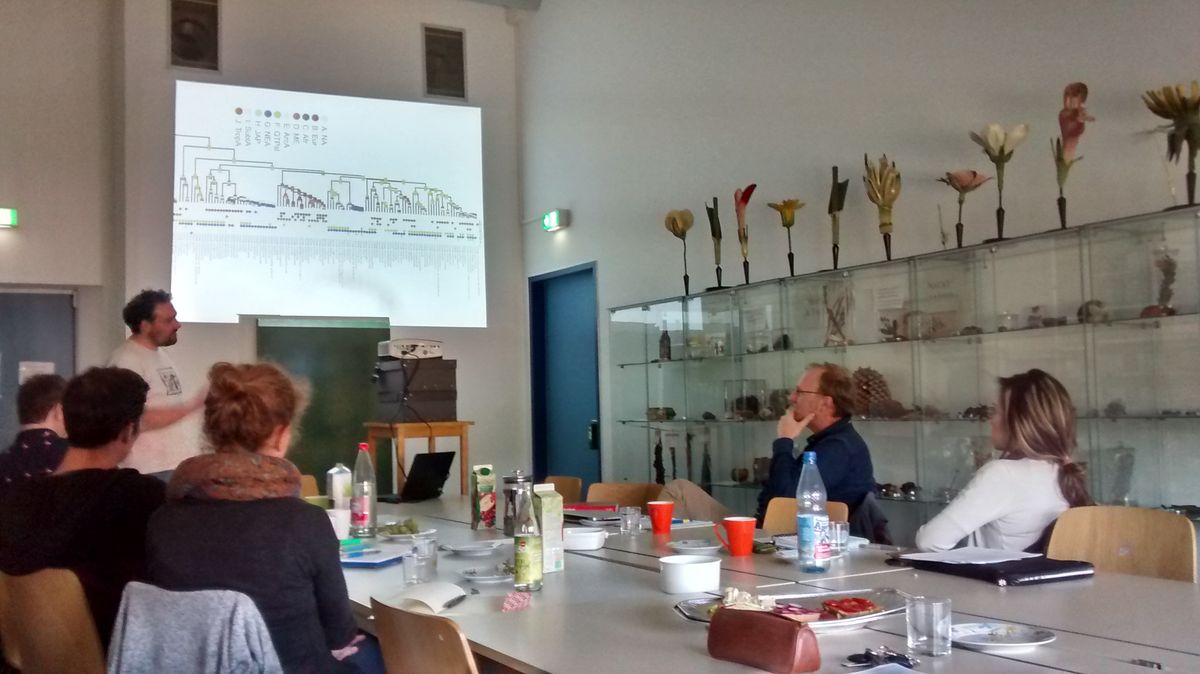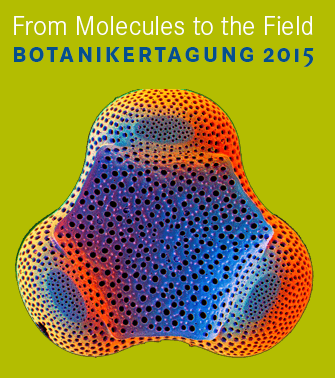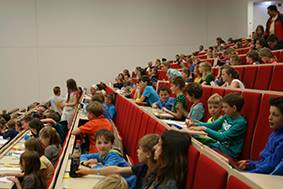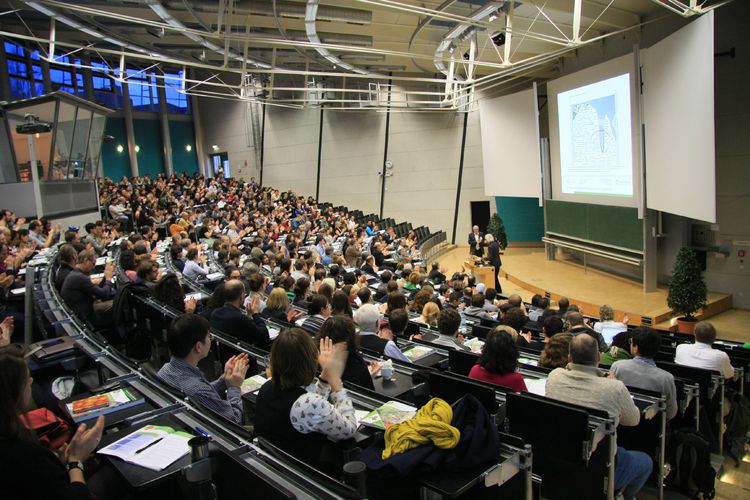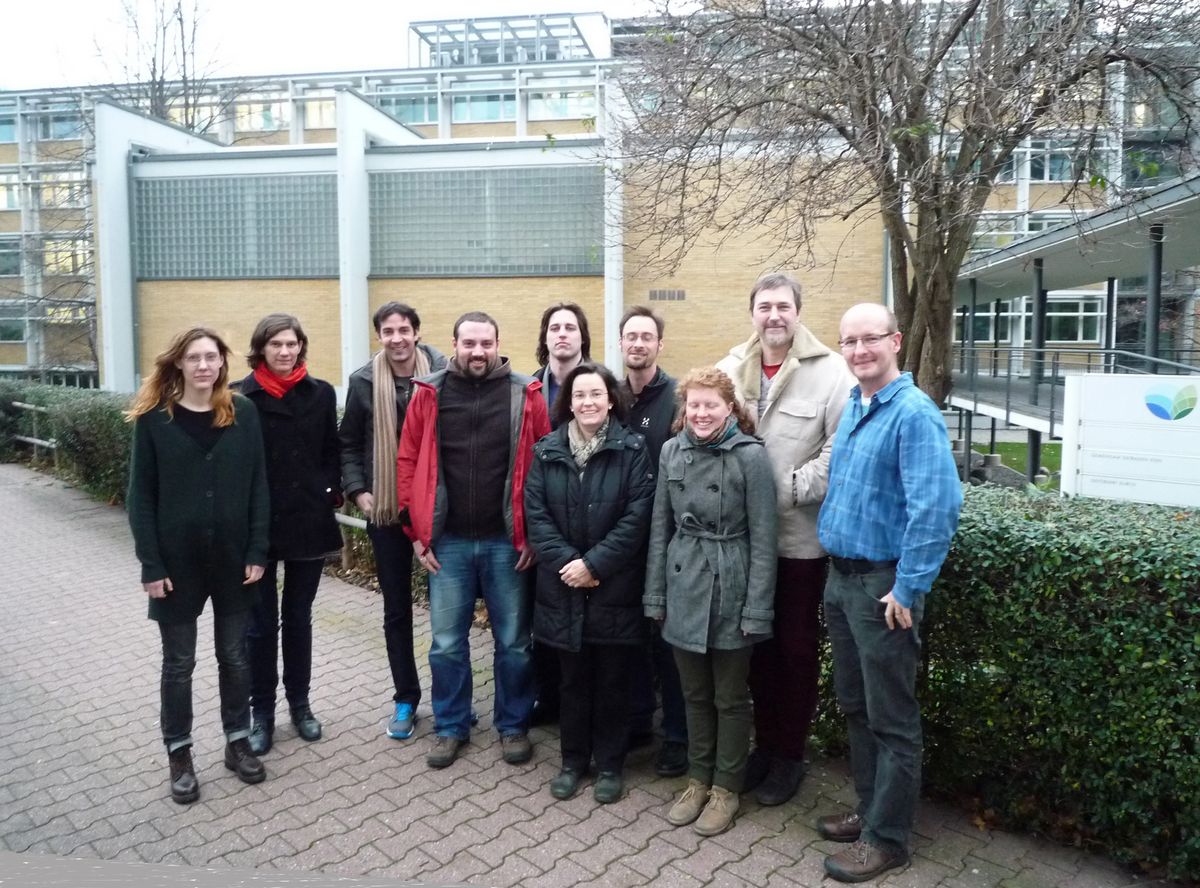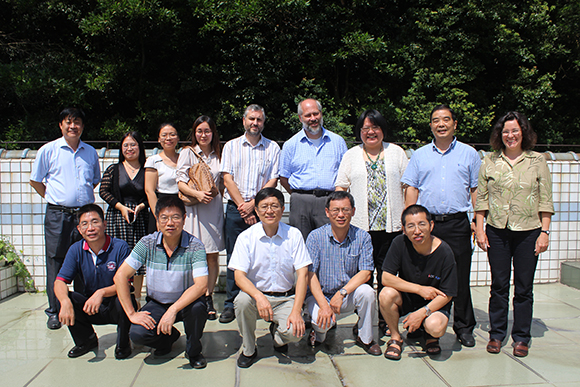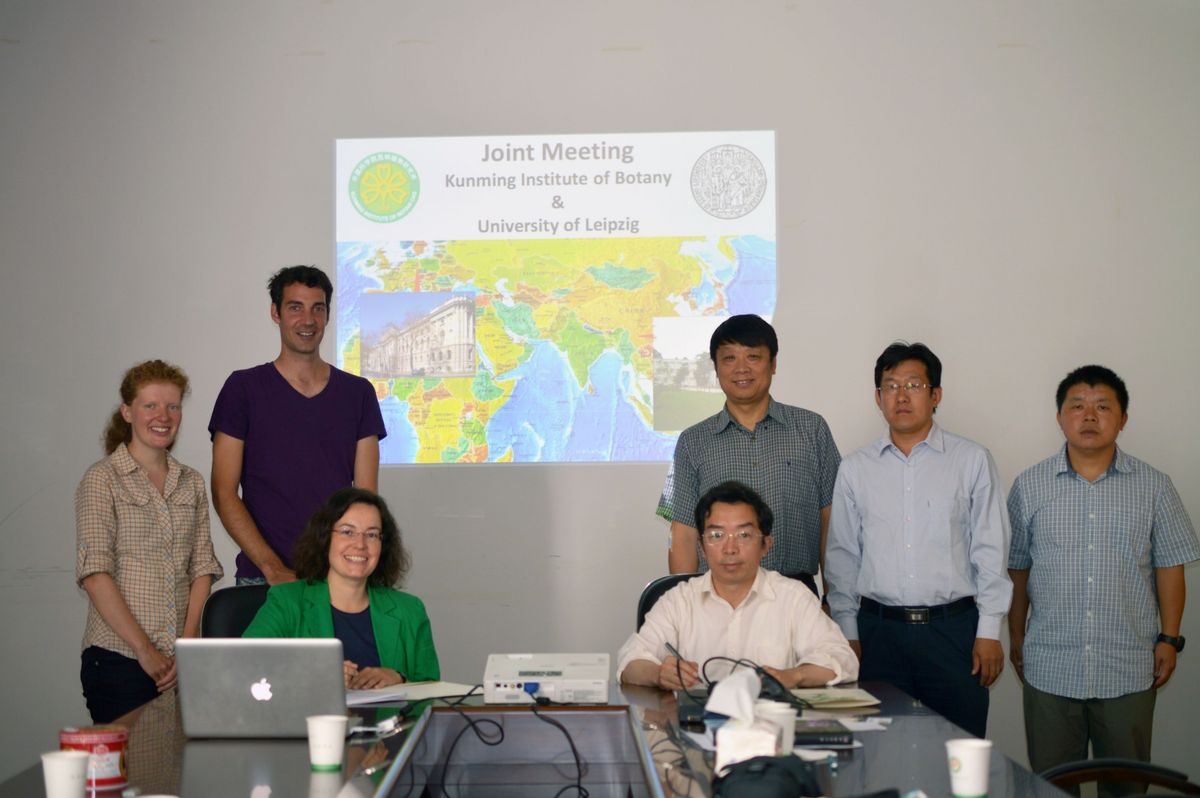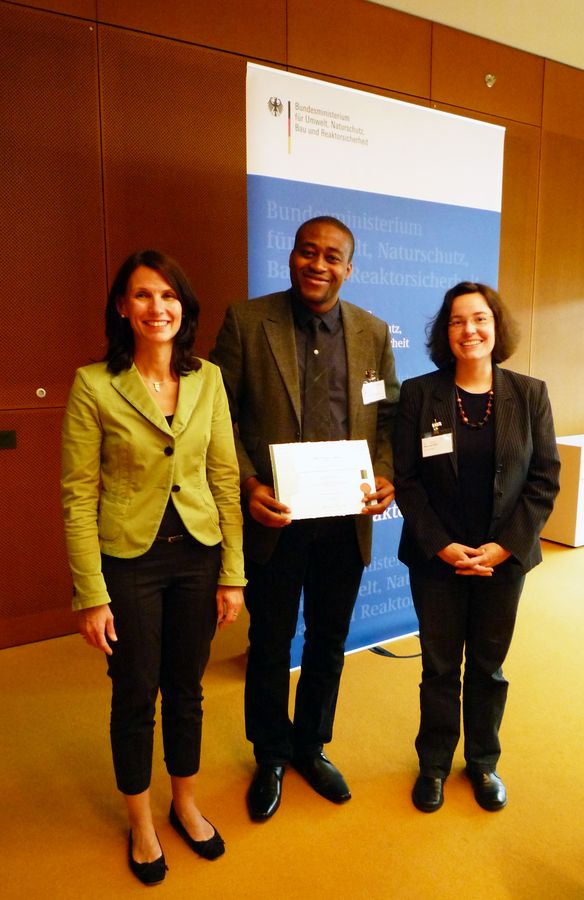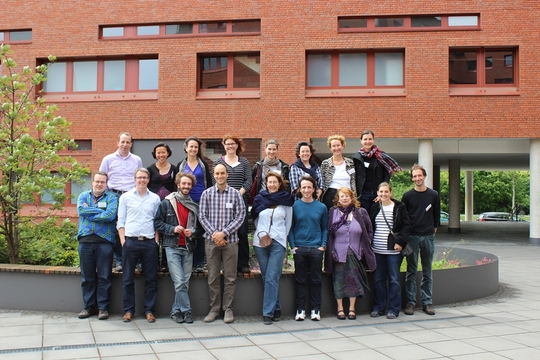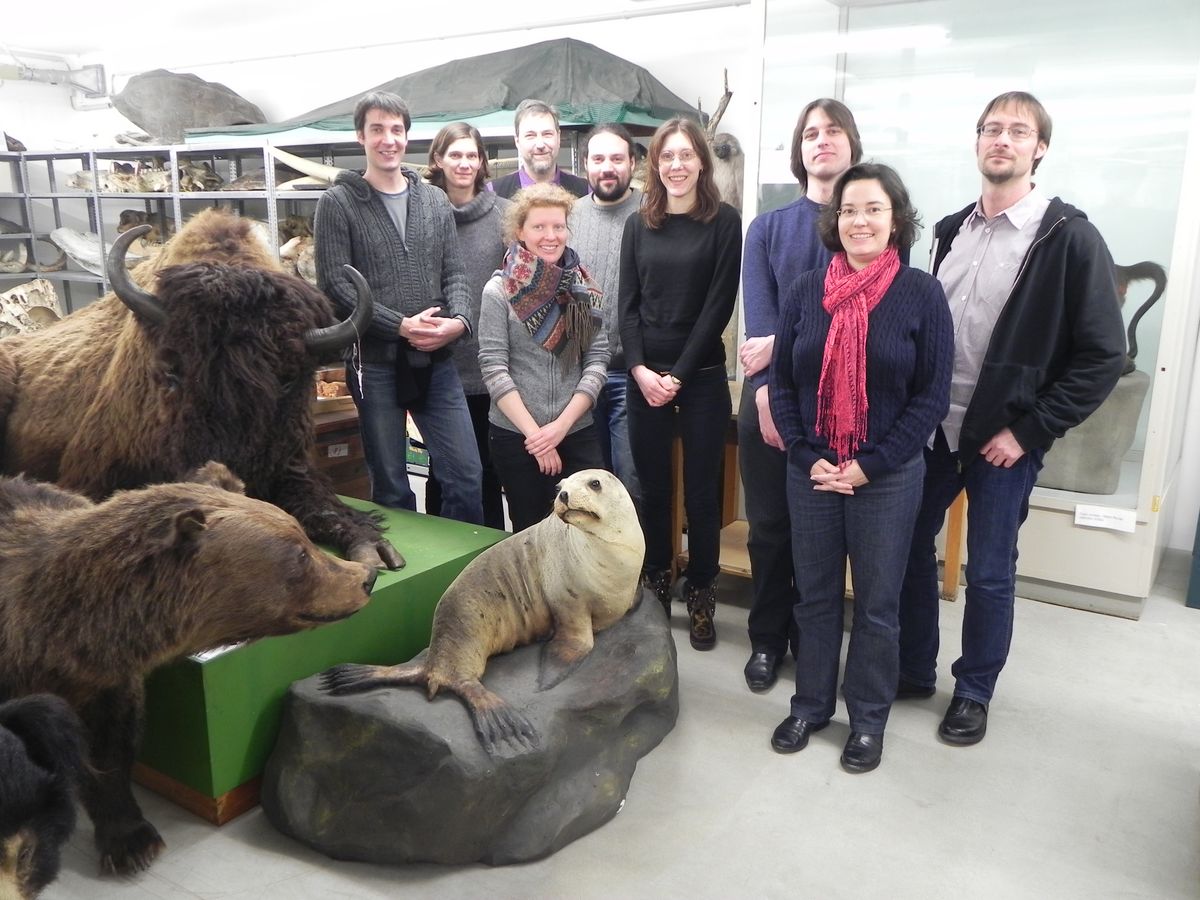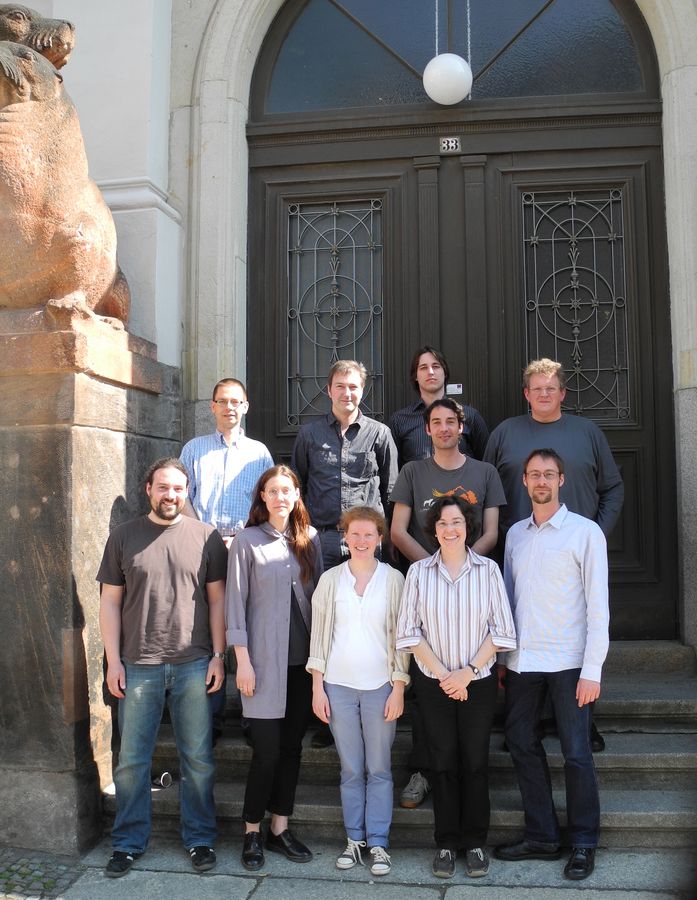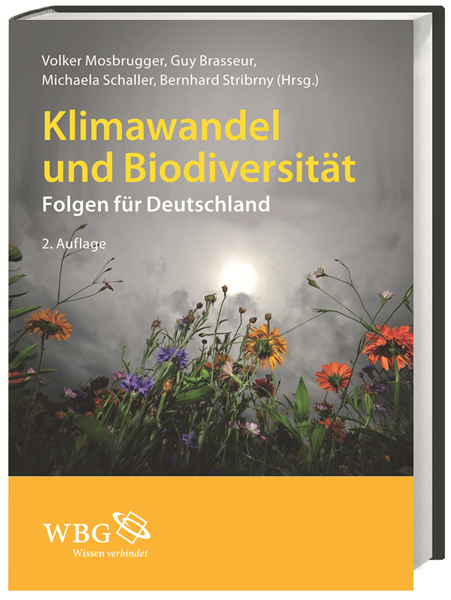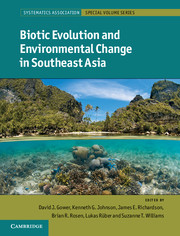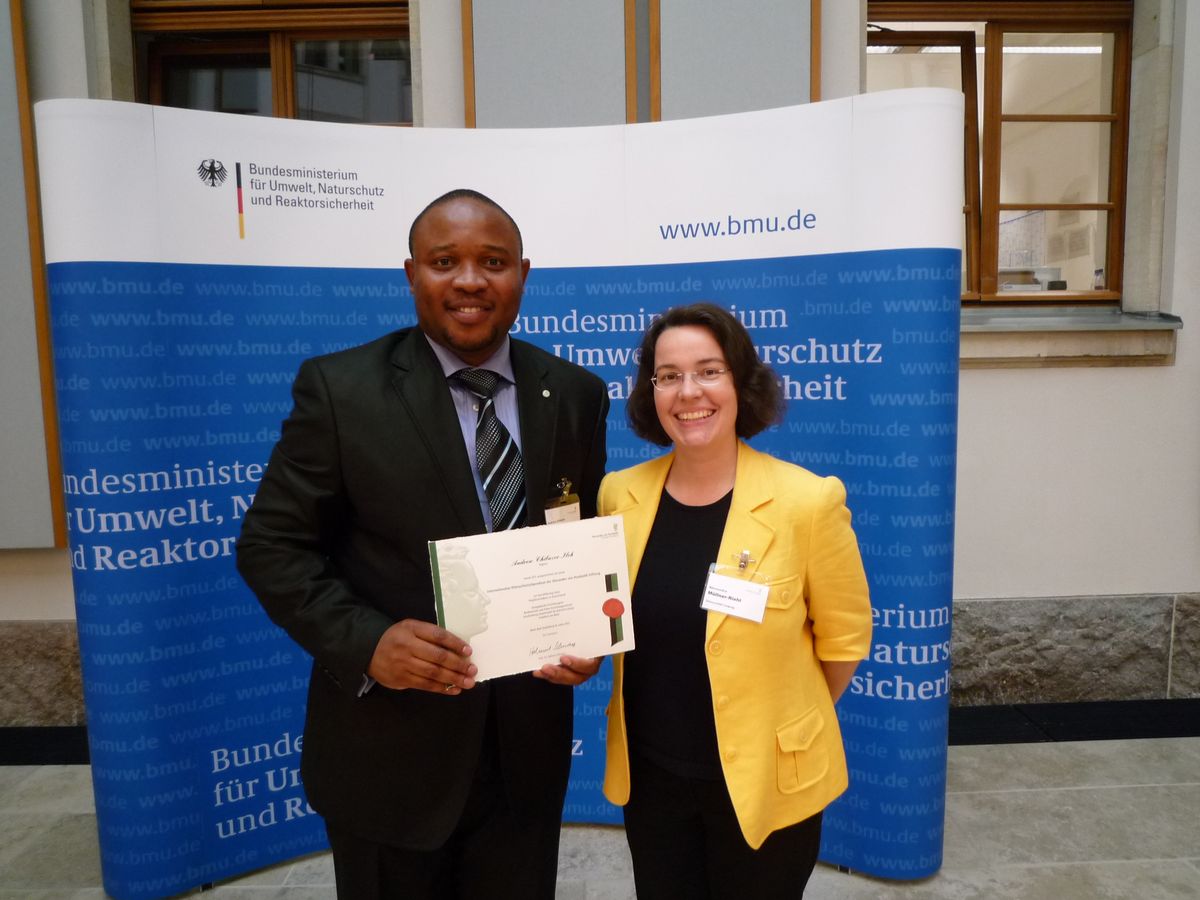2023
The conference took place from October 27–28 at the Ruhr-University Bochum (RUB). Within the framework of several lectures and a panel discussion, the topic of sustainability (including its implementation at universities) was discussed from various perspectives on the first day. After an excursion through the botanical garden of the RUB, the DGH general meeting and the meeting of the regional speakers took place on the second day. Prof. Alexandra Muellner-Riehl attended the meeting as a member of the Leipzig-Halle regional group and as a representative of its spokesperson.
The keynote address at the symposium on October 24 provided an overview of diversity policy developments at German universities over the past fifteen years. Based on selected milestones and successes as well as challenges and gaps, it conveyed what constitutes good diversity work, what framework conditions it requires, and how it can respond to sometimes difficult (higher education) policy conditions. The keynote was followed by a panel discussion with representatives of various Saxon institutions, including the central equal opportunity officer of Leipzig University Leipzig, Georg Teichert. Members of iDiv's Equal Opportunity Committee (EOC), including Prof. Alexandra Muellner-Riehl, also attended the symposium to learn about current developments and opportunities for promoting diversity at scientific institutions.
On October 20, the very well-attended opening of the exhibition "Vegetabilia" with works by the graphic artist Irene Beyer-Stange took place in the Rathausgalerie Roßwein, which were inspired, among other things, by objects from our scientific plant collection. The artist has been visiting our herbarium once a week for several months as "Artist in Residence".
The conference was held hybrid in Matsudo, Chiba, Japan from August 30th to September 6th 2023, cosponsored by the Graduate School of Horticulture, Chiba University. NECLIME is an open international network of scientists working on Cenozoic climate evolution and related changes of continental ecosystems. Presentations were covering topics such as: evolution of climate, vegetation, biogeography in Asia; extreme environments (e.g., high latitudes, high elevations, high CO2 world); Paleogene – biogeography, climate, and evolution; quantifying past plant biodiversity and vegetation history; regional signals of past climate and vegetation to be compared with future scenarios.
The Symposium of this Section of the German Botanical Society (DBG) took place from August 23–26 at the University of Giessen. This year's theme, "Plant Evolution in a Changing World," was addressed in a variety of ways, including many evolutionary topics, contributions to past and present climatic change, and the challenge of using artificial intelligence, which is likely to change future scientific research.
2018
The newly published book "Mountains, Climate and Biodiversity" (edited by C. Hoorn, A. Perrigio and A. Antonelli) explores the relationship between mountain building and climate change, and how these processes shape biodiversity through time and space. Two chapters were co-authored by members of our working group.
'Mountains, Climate and Biodiversity' is intended for students and researchers in geosciences, biology and geography.
The "European Conference of Tropical Ecology" and the Annual Conference of the Society for Tropical Ecology (Gesellschaft für Tropenökologie, gtö) in 2018 were hosted by the Muséum National d'Histoire Naturelle/UPMC/Académie des Sciences-COPED, Sorbonne Universités, Paris, from March 26-29th. The overarching topic was "Challenges in tropical ecology and conservation - global perspectives". Prof. Alexandra Muellner-Riehl presented a keynote lecture on plant radiations and floristic exchange across biodiversity hotspots in Asia.
At the occasion of a travelling conference funded by the German Federal Ministry of Education and Research, Vietnamese and German scientists met on February 9, 2018, at the Vietnam National Museum of Nature in Hanoi. The aim was to explore research collaborations involving partner institutions from both countries.
On February 6, 2018, a Memorandum of Understanding (MoU) was signed with the Xishuangbanna Tropical Botanical Garden, with the aim of strengthening and promoting scientific cooperation between the University of Leipzig and this internationally acclaimed institution of the Chinese Academy of Sciences. Planned activities include, inter alia, the realisation of joint projects and exchange of scientists and students between both institutions. Read more. english.xtbg.cas.cn/ns/es/201802/t20180208_189995.html
2017
This international meeting on “Geobiodiversity - An Integrative Approach Expanding Humboldt's Vision” was held from October 1st to 3rd, 2017, at Senckenberg, Frankfurt, hosted by Senckenberg Gesellschaft für Naturforschung in cooperation with Yale University and Stanford University. Adrien Favre, former member of our department, now based at Senckenberg/Goethe University, presented results from recently conducted joint research projects.
We were pleased to host a symposium on 'Biodiversity and Health' at the 3rd International Conference on Southeast Asian Gateway Evolution (SAGE 2017) in Bogor, Indonesia, from August 28 - September 1, 2017. The interdisciplinary meeting focused on the origin, diversifcation, and conservation of Southeast Asia's megadiverse fauna and flora against the background of the region's complex geology and climate history. For more information, please visit sage2017.org
The XIX International Botanical Congress took place from July 23rd – 29th in Shenzhen, China. We presented results from current and recently successfully completed research projects. With almost 7000 participants from all over the world, this has so far been the largest botanical congress of all times.
The MedPlant conference was held at the University of Bern from February 6-7, 2017. We presented results from current research projects. MedPlant is a Marie Curie Initial Training Network (ITN) coordinated by the University of Copenhagen, supporting a new generation of researchers in exploring the evolution and sustainable use of medicinal plant diversity for unmet medical needs.
The meeting was held at the University of Arizona and the Tucson Marriott University Park, Tucson, Arizona, from January 9-13, 2017. We presented results from current research projects. The meetings of the International Biogeography Society bring together researchers from ecology and evolutionary biology to provide a holistic understanding of the relationships between the Earth and its biota.
2016
It is our pleasure to announce the 58th Phylogenetic Symposium `Evolution meets Ecology´ which will take place in Leipzig, November 18-20, 2016. For more information, please visit our website at https://conference.uni-leipzig.de/phylosym2016/. Registration is online and free of charge. Poster presentations by students and postdocs are welcome!
https://www.idiv.de/en/news/archive_2016/news_2016_single_view/news_article/merging-evol.html,
This meeting of the German Botanical Society (DBG) is taking place at the University of Munich. We will present results from current research projects. Participation at the Eduard Strasburger Workshop will allow insights into current developments and challenges in "Phylogenomics - The next generation of evolutionary botany".
The symposium was held from July 11h to 15th, 2016, at the Royal Botanic Garden Edinburgh in Scotland. We presented results from current research projects. Several of our Indonesian collaboration partners attended the conference as well. The International Flora Malesiana Symposia are held every three years and bring together scientists from around the world who are conducting research on various aspects of the flora of Malesia (Indonesia, Malaysia, Singapore, Brunei Darussalam, the Philippines, and Papua New Guinea).
On April 21st, 2016, another meeting of our Research Cluster "Origin and Evolution of Tibetan-Himalayan biotas" took place here in Leipzig, this time attended by collaboration partners from the University of Potsdam (Institute of Earth and Environmental Science). Topics of the meeting were presentation and discussion of results from the first phase of the cluster as well as a discussion of possibilities for future collaboration.
2015
The conference was held from August 30th to September 3rd, 2015, in the vicinity of Munich. Several members of our department attended with presentations on their current research projects. The Botanikertagung is a biannually held conference that brings together world leading pioneers, experts and early-career scientists from a wide range of disciplines in plant biology.
Topic of this symposium was the better accessibility and digitization of identified plant specimens from geographic areas difficult to access (e.g., Afghanistan; high mountains and plateaus of Central Asia - Pamir, Karakoram, Himalayas, Tibet). The meeting took place at Munich´s herbaria which are an important resource for the study of the flora and vegetation of Afghanistan, essential for the development of science, agriculture, and nature conservation, on July 31st.
On May 29th, 2015, Prof. Alexandra Muellner-Riehl held a lecture on the fascinating life and survival strategies of plants at the Audimax at Campus Augustusplatz for pupils aged 8 to 12. Successful participants of a quiz accompanying the lecture were happy to be invited to visit our plant collection at the Institute (guided tour by Dr. Peter Otto).
From January 29-30th, 2015, the fourth coordination meeting of the working groups in our Research Cluster "Origin and Evolution of Tibetan-Himalayan biotas", funded by the German Science Foundation (DFG), took place at the Leibniz Association, in Berlin. Topics of the meeting were progress reports of the individual projects and brainstorming for follow-up projects.
The conference was held from January 8th to12th, 2015, at the University of Bayreuth in Germany. Several members of our department attended with presentations on their current research projects. Topical focus sessions spanned the breadth of biogeography, from watersheds to the global scale, from Paleozoic to the Anthropocene, and from microbes to megafauna and -flora. Over 600 scientists from more than 50 countries participated in the conference.
2014
On December 1, 2014, the third coordination meeting of the working groups in the Research Cluster "Origin and Evolution of Tibetan-Himalayan biotas", funded by the German Science Foundation (DFG), took place at the Biodiversity and Climate Research Centre (BiK-F), in Frankfurt. Topics of the meeting were e.g. progress reports of the individual projects, developing a schedule for project prolongations and planning of joint follow-up projects.
From September 10-12, 2014, the first joint meeting of the newly appointed editorial board (including Prof. Dr. Muellner-Riehl) of "Journal of Systematics and Evolution" took place in Fairy Lake Botanical Garden in Shenzhen. The Chinese city of Shenzhen will host the XIX International Botanical Congress (IBC) in 2017. The "Journal of Systematics and Evolution" is a bi-monthly international English language journal dedicated to the description and understanding of biological diversity. Contributions to topics like phylogenetics, biogeography (incl. phylogeography), palaeobiology, and genome evolution are welcome.
On September 9, 2014, a Memorandum of Understanding (MoU) was signed at our partner institution in Kunming, with the aim of strengthening and promoting scientific cooperation between the University of Leipzig and the Kunming Institute of Botany, Chinese Academy of Sciences. Planned activities include, inter alia, the realisation of additional joint projects and exchange of scientists and students between the two institutions.
As part of the closing seminar of the International Climate Protection Fellows on June 23, 2014, the Parliamentary State Secretary Rita Schwarzelühr-Sutter, Federal Ministry for the Environment, Nature Conservation and Nuclear Safety, invited both students and hosts for a ceremonial handing over of the certificates. Paul Lyam, Fellow of the Alexander von Humboldt Foundation and PhD student in our department, investigates the genetic diversity of the economically important tree species Acacia senegal in West Africa, and the impact of climate change and land use on its populations.
Present-day patterns of biodiversity are the result of long-term dynamics of speciation, adaptation, changing geographic ranges, and ultimately extinction. These dynamics are directly influenced by Earth surface processes that generate landscape and climate changes, environmental gradients and physical habitats, and thus set the stage for species evolution. This workshop at the German Centre for Integrative Biodiversity Research (iDiv; May 5-8, 2014) in Leipzig aimed at developing a general analytical framework for the integration of biological information from both extant and extinct species with Earth surface processes to better understand the “co-evolution” of landscapes and life.
On January 20, 2014, the second coordination meeting of the working groups in the Research Cluster "Origin and Evolution of Tibetan-Himalayan biotas", funded by the German Science Foundation (DFG), took place at the Museum of Zoology, Senckenberg Natural History Collections, in Dresden. Topics of the meeting were e.g. progress reports of the individual projects, exchange of information regarding field work in China/Tibet, and developing a schedule for the data transfer of sub-projects to the coordinating umbrella project.
2013
After the project start in spring 2013, the first coordination meeting of the working groups in the Research Cluster "Origin and Evolution of Tibetan-Himalayan biotas", funded by the German Science Foundation (DFG), took place at the University of Leipzig on May 8, 2013. The sub-projects as well as the umbrella project, synchronously carried out at Leipzig, Dresden and Frankfurt, are being coordinated from Leipzig´s office (Speaker: Prof. Dr. Muellner-Riehl). Topics of the meeting were e.g. the status of ongoing work, methodological standards, data transfer and communication strategies between projects.
The threat of loss of biodiversity as a result of climate change is one of the biggest challenges of the coming decades. The report released a few days ago, "Climate Change and Biodiversity: Implications for Germany" (January 2013), summarises the state of knowledge on the expected impact for Germany. The status report was elected “Book of the Month” by the German Environment Foundation. Our involvement in the project was in collaboration with the Biodiversity and Climate Research Centre (BiK-F).
2012
Flora and fauna of Southeast Asia are exceptionally diverse. The region includes terrestrial and marine biodiversity hotspots, but it also faces the most intense challenges of the current global biodiversity crisis. The book "Biotic Evolution and Environmental Change in Southeast Asia" (second half of 2012) provides reviews, syntheses and results of the latest research into Southeast Asian earth and organismal history. Our contribution focuses on plant biodiversity patterns in this species-rich region.
The German Science Foundation (DFG) has approved the new research cluster “Origin and Evolution of Tibetan-Himalayan biotas” (19.07.2012), led by our department. It consists of four projects to be carried out in Leipzig, Dresden and Frankfurt. During the next three years, starting in early 2013, the relationship between geological and climatic changes and organismic evolution will be studied.
As part of the closing seminar of the International Climate Protection Fellows on July 11, 2012, the Parliamentary State Secretary Ursula Heinen-Esser, Federal Ministry for the Environment, Nature Conservation and Nuclear Safety, invited both students and hosts for a ceremonial handing over of the certificates. Andrew Chibuzor Iloh, Fellow of the Alexander von Humboldt Foundation and PhD student in our department, investigated the genetic diversity of endangered species in West Africa and the impact of land use and climate change on their populations.
